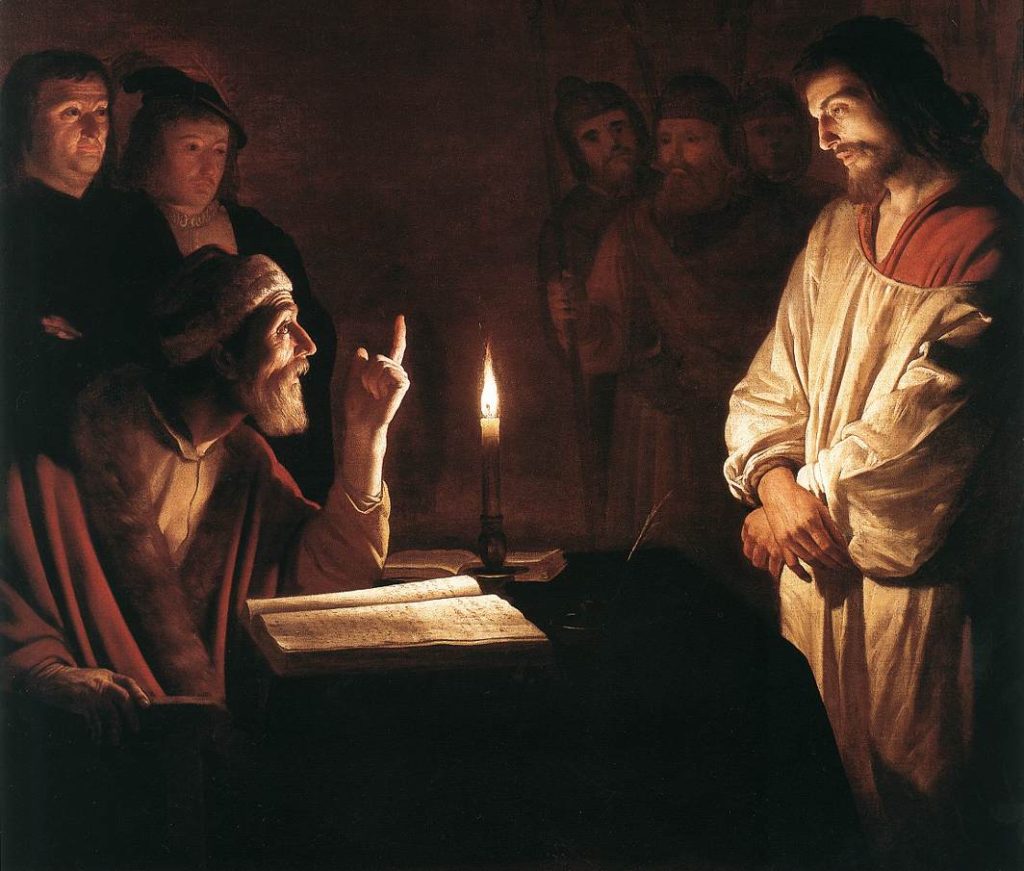|
Listen to this post:
|

I’ve been reading Dr. Andrew Loke’s The Origin of Divine Christology in preparation for an upcoming online debate with him, and I found a passage where he nicely summarizes the work of Dr. Darrell Bock on this famous scene in Mark 14:61-62 where Jesus is brought before the high priest.
According to Bock, and Loke concurs, this scene, if historically accurate, shows that Jesus understood himself to be divine, i.e. to have a divine nature.
But it seems to me that when we actually review Dr. Bock’s findings, we can see that they don’t have the christological implications that he and Dr. Loke want them to! As best I can tell, they sit perfectly well with my own human-only christology.
Loke writes,
Darrell Bock [in many published works] has proposed that Jesus’ statements in the trial before the high priest (Mark 14:61—62) indicate that he regarded himself as truly divine. In this scene, Jesus is portrayed by the Gospels as acknowledging that he is the Messiah, the Son of the Blessed One, and saying to the high priest that ‘you will see the Son of Man seated at the right hand of the Power and coming with the clouds of heaven’ (Mark 14:61-64; Matt. 26:63-66, Luke 22:67-71).
Comment: No responsible reader could think that Jesus here is being portrayed as God himself. But Dr. Loke, not being a Jesus-is-God apologist (I assume Loke would agree that this argument is sound) doesn’t think that, unlike many a lesser apologist. Rather, he thinks the point is going to be that Jesus thought himself to be divine in the sense of being a divine “Person” within the one triune God. That’s an anachronism, but let that go; the point is that Jesus isn’t claiming to “be God” but rather to have a divine nature, or to be divine and not merely human.
Now, it’s hard to see how that could result from this incident. The priest thinks Jesus has blasphemed somehow, but surely that doesn’t require claiming to be God or to be as divine as the one God, right? Right: this is confirmed by Bock’s scholarship. Again, in Loke’s summary,
After an extensive survey of the notion of blasphemy in Judaism, Bock concludes that, other than utterances of blasphemy involving the name of God, there is also a category of acts of blasphemy involving idolatry, a show of disrespect towards God or insulting God’s chosen leaders . . . Concerning certain exalted figures in Judaism (including angels and human figures such as Adam, Abel, Enoch, Abraham, Moses, David, Job, Messiah, Enoch Son of Man, Enoch-Metatron), Bock observes that, while being portrayed sitting close to God’s presence in heaven is possible, it is limited to only a very few individuals and usually involves very limited circumstances. The most significant exaltation scenes involve the enthronement of Moses and the transformed Enoch figures (Son of Man and Metatron). However, though some Second Temple Jews ascribed positions of exceedingly high honour to certain righteous luminaries, other Jews sought to make sure that God’s honour continued to be perceived as unique. Jewish counter-traditions indicate that those who were placed too close to God or were made too much like him were always subjected to a counter-claim that attempted to reduce their status. Furthermore, Jewish traditions express the view that God’s direct intervention and invitation is required to permit a seating close to him; candidates do not apply for the role nor do they claim it for themselves. Only God can direct such a seating . . . Bock notes that what led to the Jewish view that Jesus had blasphemed was Jesus’ saying that the Son of Man being seated at the right hand of power and coming on the clouds . . .
That last part is clearly right. But surely the reader isn’t to think that the high priest is correct here, that Jesus has actually committed a sin of blasphemy. The priest must only mistakenly think that Jesus sinned in that way.

Hi Dr. Tuggy,
Where is your debate with Dr. Loke taking place?
The current plan is 9am EST on August 2 on this YouTube channel: https://www.youtube.com/channel/UCyC9JE0FVMIGRraiue7oOOw
Comments are closed.